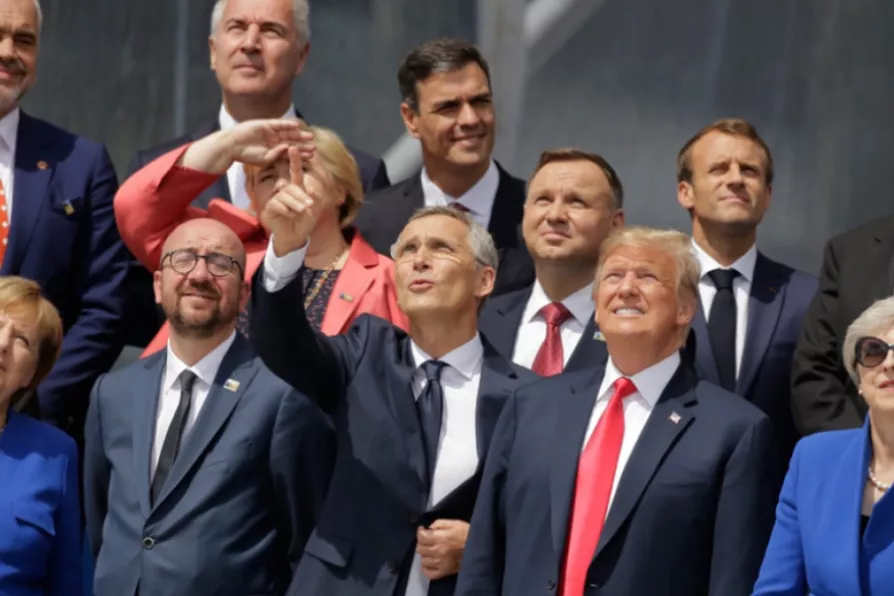
 German Chancellor Angela Merkel, Belgian Prime Minister Charles Michel, NATO Secretary-General Jens Stoltenberg, US President Donald Trump and British Prime Minister Theresa May (front row from left) watch a fly-by during a summit of heads of state and government at NATO headquarters in Brussels today
German Chancellor Angela Merkel, Belgian Prime Minister Charles Michel, NATO Secretary-General Jens Stoltenberg, US President Donald Trump and British Prime Minister Theresa May (front row from left) watch a fly-by during a summit of heads of state and government at NATO headquarters in Brussels today
While pundits concentrate on noisy clashes between Donald Trump and Angela Merkel in Brussels, few have noticed that Colombia is joining the North Atlantic Treaty Organisation (Nato) as a “global partner,” the first Latin American country to do so.
In doing so, it joins eight other “global partner” countries in Nato: Afghanistan, Australia, Iraq, Japan, South Korea, Mongolia, New Zealand and Pakistan.
Colombia has been seeking to join Nato since 2006. As a stepping stone, it signed an information sharing and security agreement in 2013 and in 2017 a partnership and co-operation programme.

With Petro, Colombia has been making huge strides towards peace — but is all that at risk with the elections next year? MARK ROWE reports back after joining a delegation to the Latin American country

Colombia’s success in controlling the drug trade should be recognised and its sovereignty respected, argues Dr GLORY SAAVEDRA

The US is desperate to stop Honduras’s process of social and democratic change, writes TIM YOUNG

FRANCISCO DOMINGUEZ says the US’s bullying conduct in what it considers its backyard is a bid to reassert imperial primacy over a rising China — but it faces huge resistance










